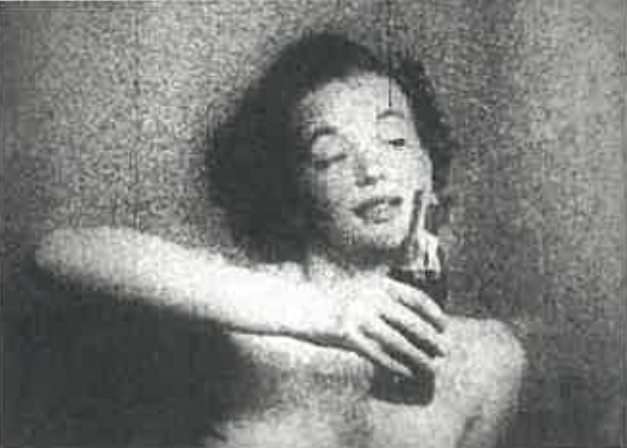Found Footage. Films made from found material
For a long time, independent, non-commercial films were almost culturally invisible. Today, they are emerging from this isolation. The boundaries between the different film styles, the various production methods and the different ways of addressing viewers are being erased.
"Footage" is the American technical term for film material. It is derived from the measure of length for film, the "foot". "Found footage" refers to films that were made partly or entirely from film material that was found somewhere and somehow.
The idea for a festival of found footage films came up rather casually. We didn't know at the time how en vogue we were with it. During the preparations, it sometimes seemed that the entire international film world was involved with found footage. This was astonishing in that this type of film has a long tradition, beginning in the 1930s; many individual works - above all Joseph Cornell's Rose Hobart (1936-39) and later the films of Bruce Conner - became very well known, especially in the USA. As an independent film form, however, found footage had never received so much attention.
The found footage boom is not just a matter for event calendars and relevant specialist journals. Never before have so many films been made from found footage as in the last ten years. And for once, this cannot be "explained" with a reference to so-called postmodernism. It is precisely here that the fragility and paradox of this term can be demonstrated.
The first masterpieces of found footage film date back to the 1930s. Since then, found footage has been the artistic forum for applied film criticism. The festival presents both: the history and development of found footage as well as its current significance.
The entire program is divided into eleven blocks, each of which has a thematic or formal focus.
The focus of the country selection is the USA. In the last decade in particular, nowhere else have so many "second hand" films been made and become as popular as in the United States.
The curator of Chicago Filmmakers, Ines Sommer, will present the production from 1980 to 1990 in three separate blocks: History, Sexuality and Power in Radical Private Appropriation and Interpretation. The program will also focus on personalities. A complete retrospective is dedicated to the American pioneer and master of collage film, Bruce Conner. Of Austrian provenance are the intensive "penetrations" that Dietmar Brehm makes of his source material, whether these are vacation or pornographic films. French artist Cécile Fontaine is also represented with an exhibition of her work. She is a specialist in material processing, bathes the films in acids, separates their color layers, collages several films on top of each other, to name just a few techniques. What is hand-made in her work is elaborately copied by Canadian David Rimmer, revealing a world of color and form as if under a microscope. Four of Rimmer's films will be on show.
Special mention should be made of two all too rarely shown classics. Tom, Tom, the Pipers Son by Ken Jacobs, who has conjured up a two-hour journey of the gaze into previously unseen visual landscapes from the short film of the same name from 1905. And the Italian film La Verifica Incerta, a surrealist expedition through the places, times and people of hundreds of Hollywood films. In contrast, the wild propaganda parodies of the Russian Aleinikov brothers, films from the Soviet underground of the 1980s, are tangible and real.
A twenty-page Stadtkino program booklet and a special found footage issue of the film magazine blimp will guide you through the festival's cinematic richness.
program overview
Bruce Conner Retrospective
Pirates of Representation
Second Hand Sex
Metamorphosen im Material
Sexual Politics
Death and the Self
Die Unschuld des Frühen - Die Erlösung Hollywoods
Das zweite Gesicht
Pornoverwesung
Die Subversion der Normen
Treibjagd im Archiv
for the full program and more information see downloads
88 Filme aus 11 Ländern zeigt das Stadtkino in einem Festival des Found Footage Films
ein gemeinsames Programm von sixpackfilm und Stadtkino
Konzept und Organisation Brigitta Burger-Utzer und Peter Tscherkassky
Unterstützung bei der Programmzusammenstellung Ines Sommer (Chicago Filmmakers), Miles McKane (Light Cone), Rose Lowder (Archives du Film Experimental d'Avignon), Sharon Sandusky (White Production Archives, Chicago)

